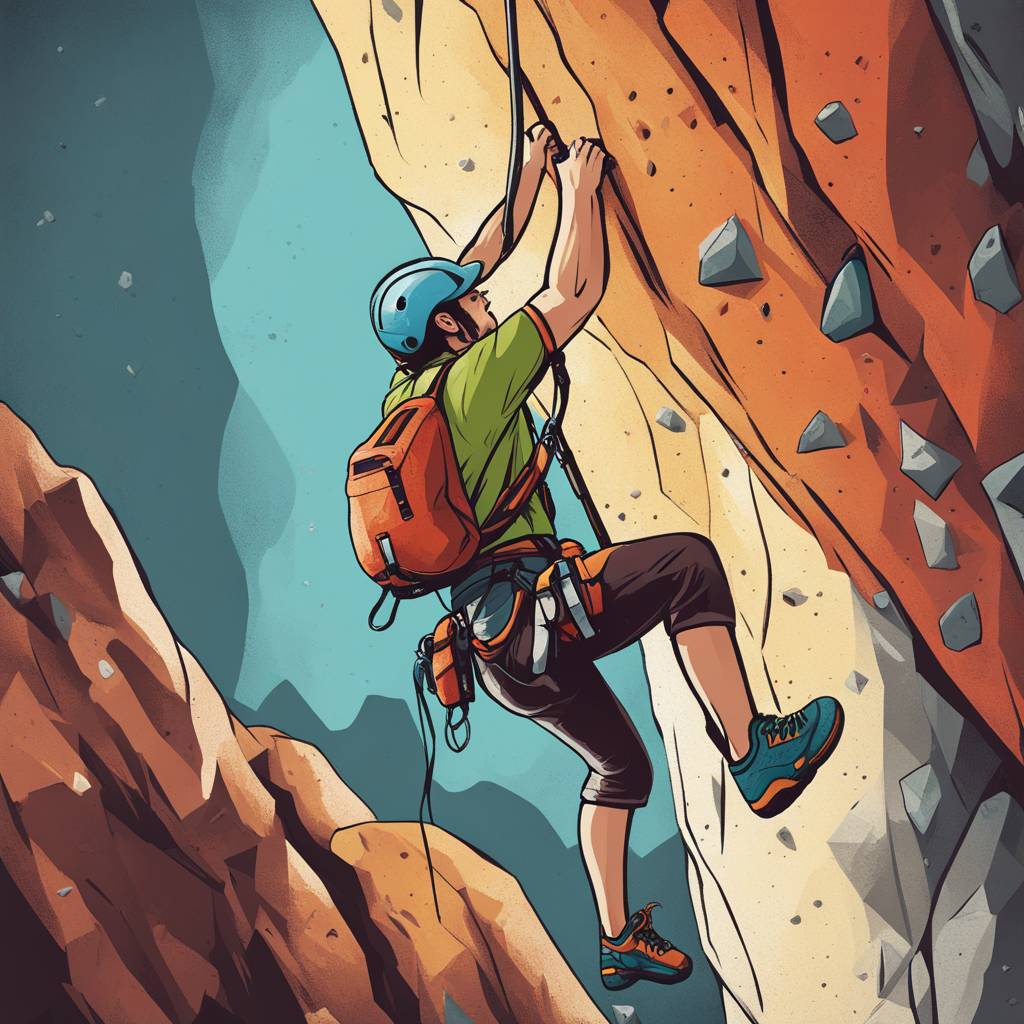In her mid-20s, the author found success in the climbing world by following the belief system of pushing through pain, sacrificing her body, and shoving her fear away. Specializing in free climbing, she achieved feats that few others, especially women, had accomplished. She had free-climbed Yosemite’s El Capitan multiple times and established new challenging routes. Appearing in climbing films and magazines, she took pride in being better than others and not showing weakness. Despite facing fear, fatigue, and regret at times, she believed in hiding her emotions as a sign of strength, especially after surviving a kidnapping in Kyrgyzstan.
There was little room for women or emotions in the climbing world at the time, with climbers needing to display bravado and the ability to suffer to stand out. The author realized early on that showcasing suffering, such as climbing through a broken foot or enduring hours without food or water, was as important as physical prowess in gaining recognition. She embraced the bravado culture for years, believing it was necessary to succeed in the sport. Climbers were celebrated for their ability to endure extreme conditions, and the author found herself conforming to this mindset to excel in her career.
Despite her success, the author began to question the “suck it up” mentality that had defined her climbing career. Events such as divorce, remarriage, and multiple injuries forced her to reevaluate her approach to climbing. Giving birth to a child led to a rediscovery of her body and a realization that she had been conditioned to hide vulnerability in the pursuit of success. The author started to question why she was praised for enduring challenging climbs while feeling shame for leaking while jogging postpartum. These experiences caused her to confront the facade of strength she had maintained and reconsider the impact of the bravado culture on her life.
The author’s journey of self-discovery and questioning the prevailing attitudes in climbing led her to a new perspective on success and strength. She began to challenge the notion that suffering and suppressing emotions were a sign of strength, recognizing the importance of vulnerability and authenticity in her personal growth. By reevaluating her beliefs and priorities, the author found a new sense of empowerment that allowed her to move beyond the limitations of the bravado culture in climbing. She started to embrace her emotions and prioritize self-care, leading to a deeper connection with herself and a more balanced approach to life and climbing.
Through her experiences, the author learned to value her emotions and vulnerabilities as sources of strength rather than weaknesses to be hidden. She found that by prioritizing self-care and authenticity, she could achieve success in a more sustainable and fulfilling way. This shift in mindset allowed her to navigate the challenges of climbing and life with a newfound sense of resilience and inner strength. By embracing her true self and rejecting the pressures of the bravado culture, the author discovered a deeper connection with her passion for climbing and a renewed sense of purpose in her personal journey.
In conclusion, the author’s journey from conforming to the bravado culture of climbing to embracing vulnerability and authenticity reflects a broader shift in mindset and values. By questioning the traditional notions of strength and success in the climbing world, she found a more holistic approach to her career and personal life. Through self-reflection and self-acceptance, the author was able to redefine her understanding of strength and resilience, ultimately leading to a more fulfilling and balanced life. Her story serves as a powerful reminder of the importance of embracing vulnerability and authenticity in achieving true success and personal growth.


